Legislative Hall and Legislative Mall
The site of Delaware’s state capital building and the outdoor location of large, annual LGBTQ+ festivals.
1968-Present,
411 Legislative Avenue, Dover, DE
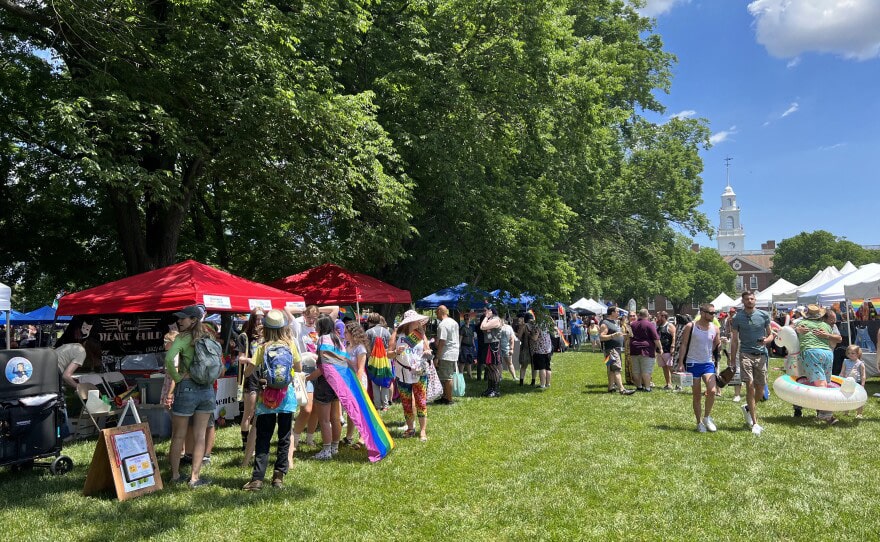
In 1933, Legislative Hall replaced the Old State House as the state capital building in downtown Dover where Delaware’s General Assembly congregate over state-level legislation. The first bill granting civil rights to LGBTQ+ Delawareans was passed here in 1997. The nearby, outdoor space called Legislative Mall has hosted Delaware’s annual Pride Festival since 2014 and the I Am Me Inc.’s Me Fest since 2022.
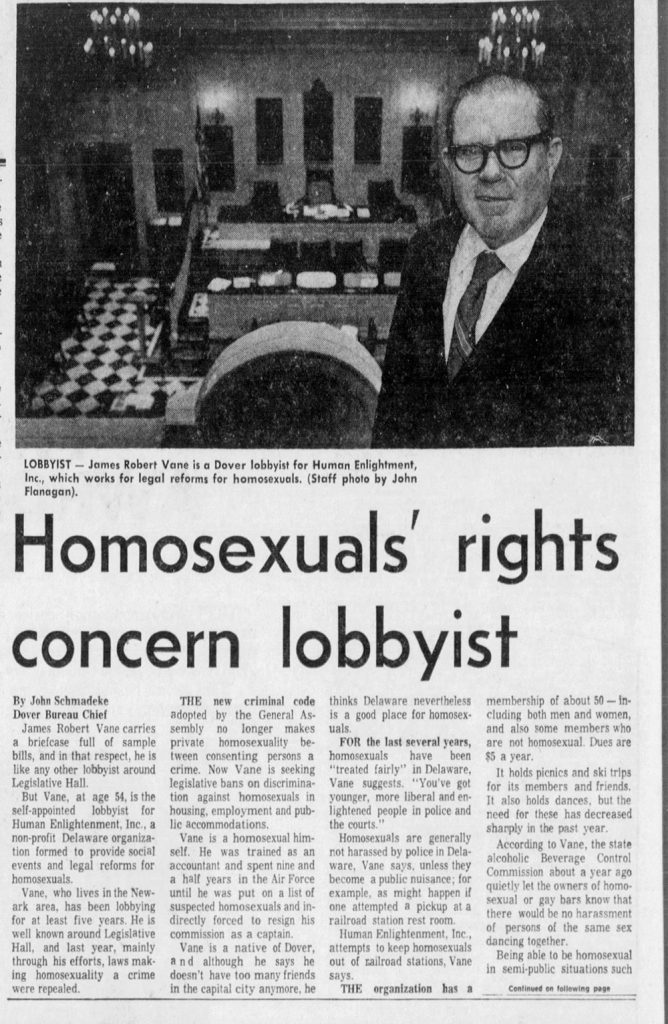
Legislative Hall’s earliest documented queer history began with James Robert Vane (1919-1991), a native of Dover who became a lobbyist for The Homosexual Law Reform Society of Philadelphia (HLRS).
In 1968, Vane appeared before members of the General Assembly and lobbied to remove Section 765 of Delaware’s criminal code pertaining to consensual sodomy. After five years of lobbying at Legislative Hall, in 1973 the General Assembly voted to remove the ban against consensual sodomy between adults, effectively legalizing homosexuality in Delaware. Vane immediately began efforts to give homosexuals equal rights to housing and employment, but he “felt like he was fighting the battle alone,” and did not continue lobbying in Delaware after 1975.
Prior to his public activism in his home state, Vane spent nine-and-a-half years in the United States Air Force before being placed on a list of “suspected homosexuals” and forced to resign. He was professionally trained as an accountant, but volunteered under HLFS and Human Enlightenment Inc. (a Delaware-based nonprofit organization) to achieve legal reforms for homosexuals.
It wasn’t until 1997 that the first bill granting civil rights to LGBTQ+ Delawareans, Senate Bill 53, was signed into law by then-Governor Thomas Carper. The bill increased the penalty for hate crimes committed against someone because of their sexual orientation. The bill was introduced after a violent hate crime was committed against three men in Rehoboth Beach, leaving one of the men with brain damage. Notably missing from the legislation were protections for hate crimes against transgender or gender-nonconforming people.

In the late 1990s, the American Civil Liberties Union of Delaware (ACLU-DE) formed the LGBTQ+ Rights Project with the goal of passing a bill that added sexual orientation to the list of prohibited practices of discrimination. The ACLU-DE organized “Lobby Days,” where queer Delawareans and their allies met at Legislative Hall and learned how to lobby and testify for LGBTQ+ civil rights. The first attempt at a non-discrimination bill to amend the Delaware Code and prohibit discrimination on the basis of sexual orientation was presented in January 1999, but did not pass until 2009. During that time, ACLU-DE Director and lesbian woman, Drewry “Drew” Fennell, built and strengthened relationships with legislators through the group’s lobbying efforts. Fennell recalled receiving harassing phone calls just for lobbying for equal protections. By 2009, it became difficult for legislators who became familiar with Fennell and her colleagues to deny them protections, and Senate Bill 121, the non-discrimination based on sexual orientation bill, was passed. Again, notably missing from this legislation were protections for gender identity.
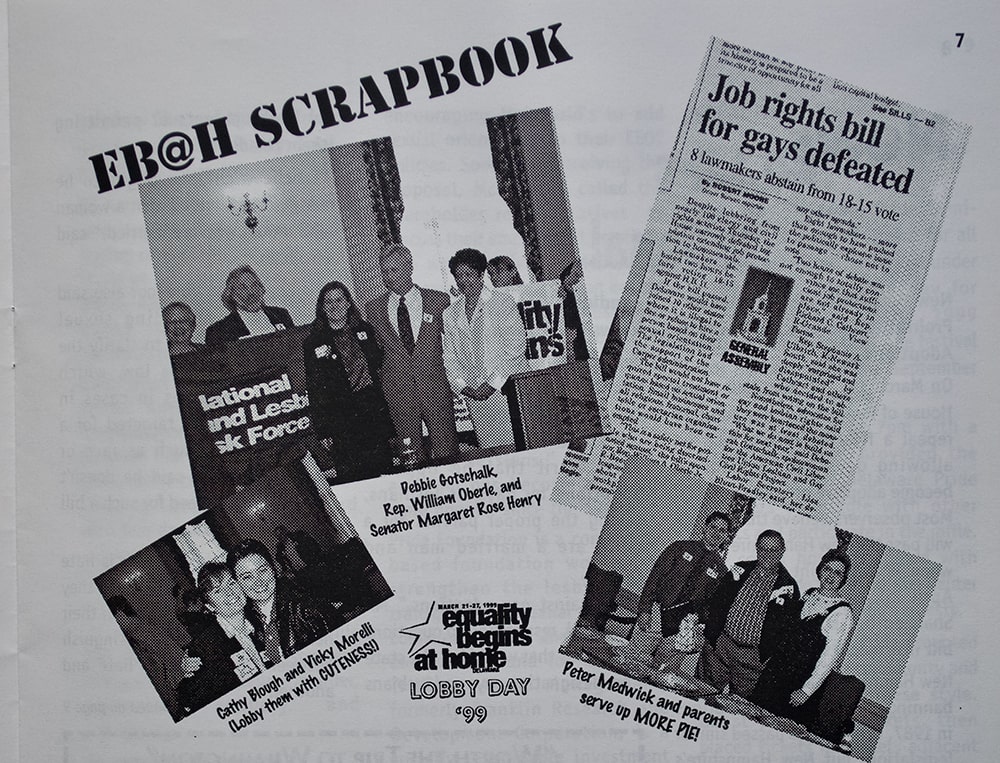
In 2010, the core group behind ACLU-DE’s LGBTQ+ Rights Project, led by queer Delawareans Lisa Goodman and Mark Purpura, created the Equality Delaware Foundation, a statewide LGBTQ+ advocacy organization better known as Equality Delaware. The new organization’s goal was to educate the community about the need for civil rights for queer people, and to secure legal protections for same-sex relationships and non-discrimination protections for transgender people. Goodman recalled in a 2022 oral history interview with the Delaware Division of Historical and Cultural Affairs why the group pursued civil unions first:
I think what really moved me in particular was I had two dear friends, both of whom were parts of couples, who were really sick with cancer and they needed protections now. Not in a year, not in two years. Not in three years, but now. And so we decided for those reasons, to pursue civil unions first.
In 2011, the lobbying arm of Equality Delaware, Equality Delaware Inc., was formed. Goodman, as founding president, began grassroots efforts to educate the Delaware General Assembly on the full spectrum of experiences of Delawareans by organizing letter writing campaigns and recruiting Delawareans to testify before committees during hearings. Purpura, founding president of Equality Delaware Foundation, drafted the civil union bill and included in it a mechanism for divorce and recognition for children—both things other states’ civil union bills did not include. During committee hearings for the civil unions bill, Senate Bill 30, legislators heard first-hand experiences from queer people on why they needed civil rights. The legislation passed in three weeks, and the first couple to be granted a legally recognized civil union was Lisa Goodman and Drew Fennell. They were married on New Year’s Day at a regular Sunday morning service at their church with a crowd of over 400 people.
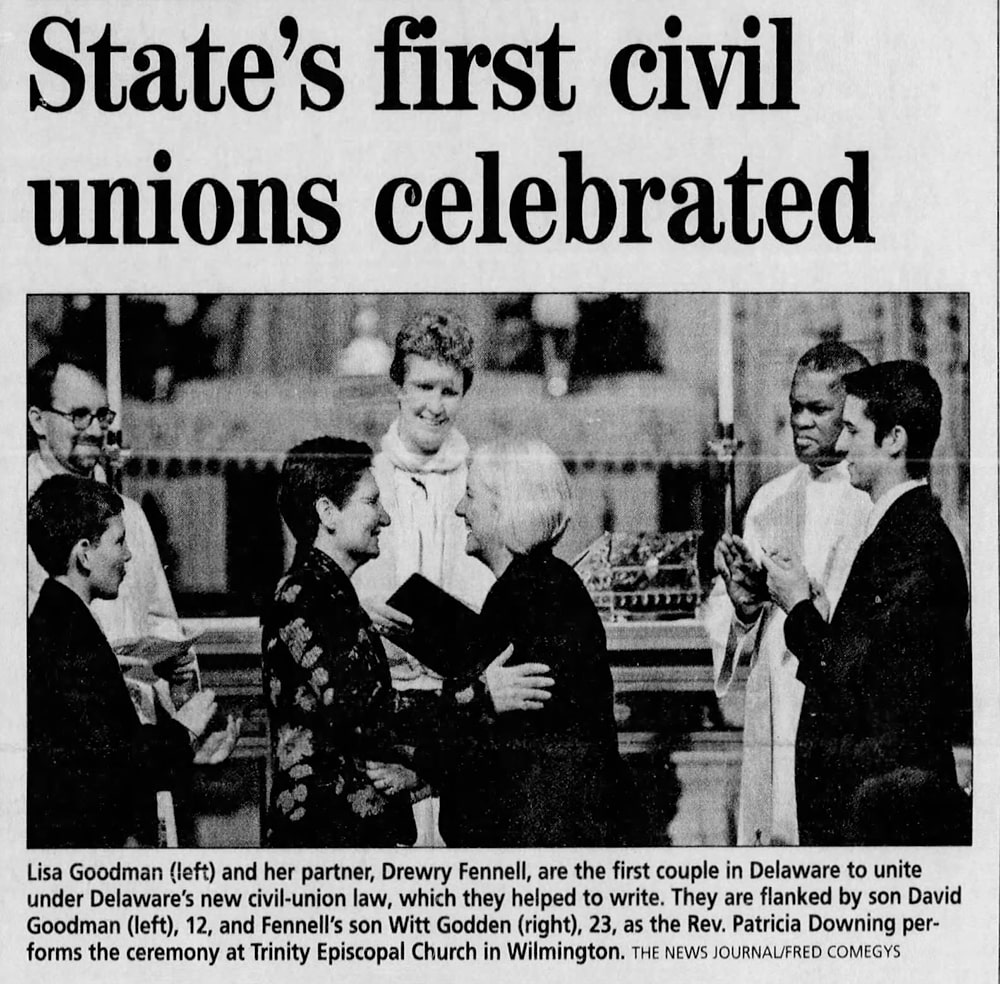
On the heels of the success of civil unions, Equality Delaware began working on a same-sex marriage bill. In addition to letter-writing campaigns and countless phone calls, many queer couples traveled to Legislative Hall to testify before committees on the need for legal relationship recognition. Finally, Senator Karen Peterson came out on the Senate floor in a plea to have her fellow legislators vote yes on the marriage equality bill. Between the work of Equality Delaware, individual Delawarens who lobbied and testified, and Peterson’s brave coming out, in 2013, Delaware became the eleventh state to legalize same-sex marriage. Delaware’s same-sex marriage bill was even cited in the United States Supreme Court Decision’s on Windsor v. United States, which ruled that Section 3 of the Defense of Marriage Act was unconstitutional and the federal government cannot discriminate against married lesbian and gay couples for the purpose of determining federal benefits and protections.
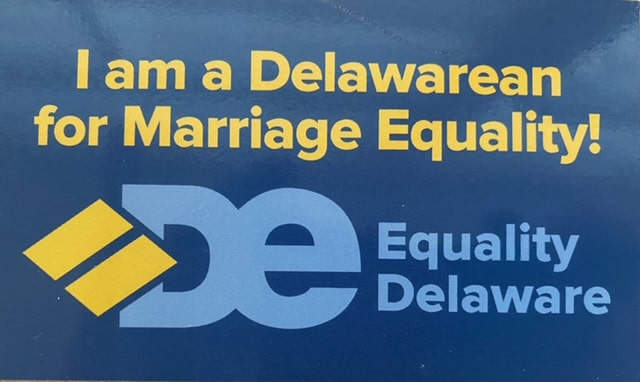
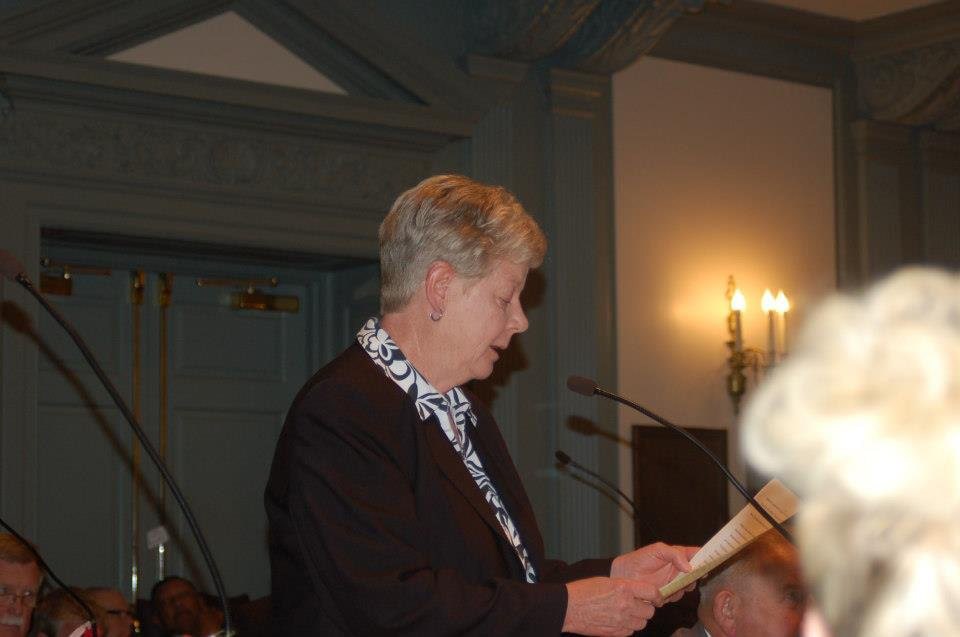
Equality Delaware capitalized on this momentum to finally pass a gender identity non-discrimination and hate crimes bill the same session. Sarah McBride, who would later become the nation’s first openly transgender state senator, and her family testified before the state senate on why the bill was needed. Their testimony humanized transgender people to legislators who may not have ever met a transgender person before. Delaware is the only state that passed both same-sex marriage and gender non-discrimination protections within the same legislative session.

Five years later in 2018, with the help of Equality Delaware, the General Assembly passed Senate Bill 65, making Delaware the twelfth state to ban conversion therapy for LGBTQ+ youth. Conversion therapy is a form of abuse against queer people that had been practiced since at least the early twentieth century in an attempt to change a person’s sexual identity. The banning of the practice has been a significant step toward protecting queer children from violence inflicted on them by homophobes.
Momentum supporting LGBTQ+ rights in Delaware continued with a historic election in 2020 that included the victories of three openly queer legislators: Senator McBride, Senator Marie Pinkney, and State Representative Eric Morrison.
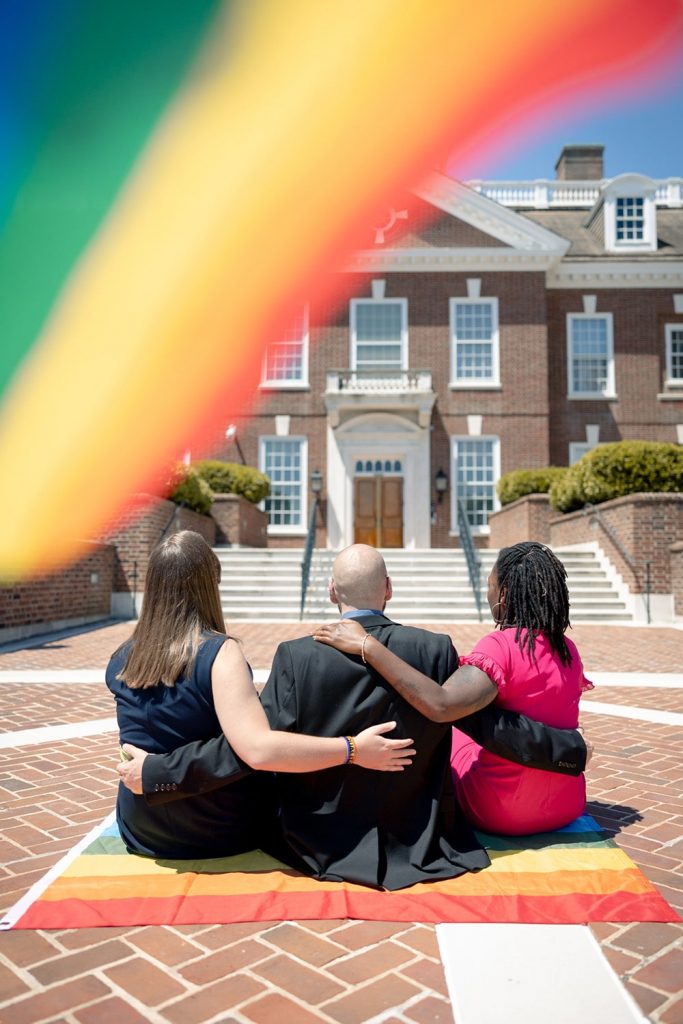
While McBride had experience testifying before the Delaware Legislature in 2013, Pinkney and Morrison did not see themselves going into politics until they decided to run. Pinkney’s background in social work and seeing the way gun violence impacted her community influenced her decision to run for office. Morrison’s experience in LGBTQ+ activism and his time canvassing for U.S. Senator Bernie Sanders of Vermont in the 2016 presidential election inspired him to run for office.
Delaware history was made again in 2022 when more openly queer officials were elected to the Delaware legislature, including state Representative Kerri Evelyn Harris and state Representative DeShanna Neal, who played a key role in passing Senate Bill 65 four years prior. Harris’ background as a veteran and community advocate led her to first run for Delaware’s U.S. Senate seat in 2018.
Not deterred by that loss, she successfully ran for state representative of Delaware’s 32nd district, which includes the Dover Air Force Base and surrounding communities.

Neal had previously made Delaware history in 2015 when the story of their transgender daughter, Trinity Neal, attracted national media coverage. In 2016, Neal successfully fought Medicaid to cover Trinity Neal’s gender-affirming care. Through these experiences and others, Neal saw the power of using their voice to make tangible change in Delaware. They successfully won the race for representative of the 13th district, defeating a 16-year incumbent.
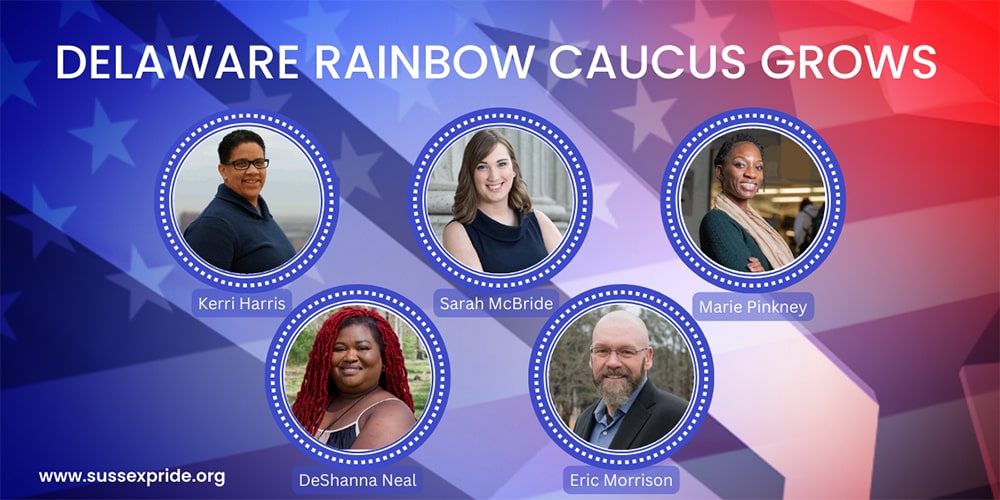
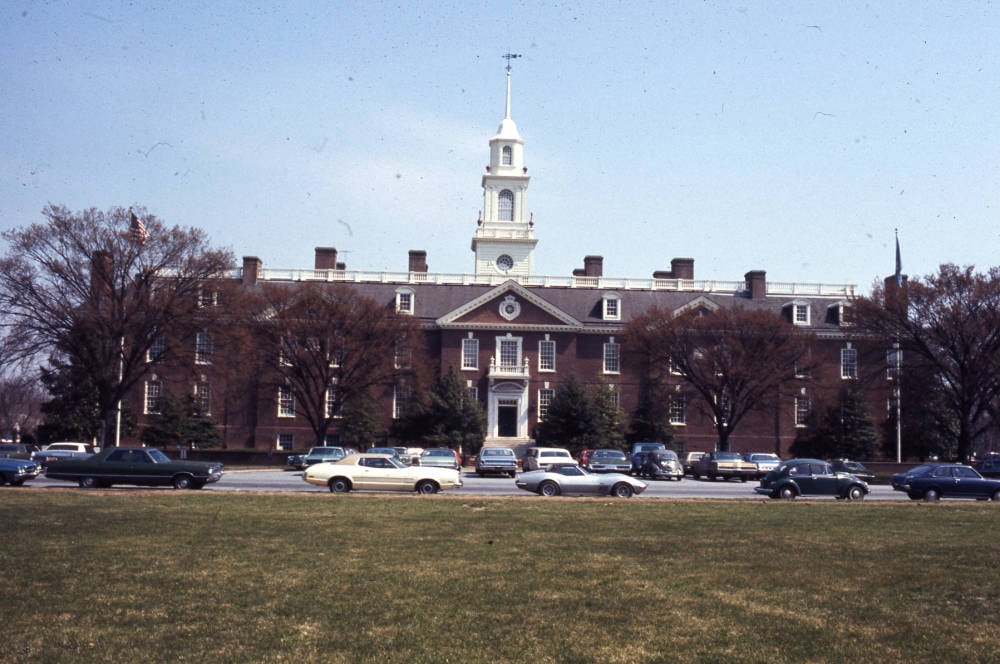
Legislative Hall itself was dedicated in 1933 and was constructed in a Georgian Revival style by architects E. William Martin and Norman M. Isham under the direction of the State Building and Grounds Commission, with additions undertaken from 1965-1970 and 1993-1994. Legislative Hall replaced the Old State House, which is located on the opposite side of Legislative Mall on The Green and is part of the First State Heritage Park.
Meanwhile, the sprawling lawn of Legislative Mall across from the current-day Legislative Hall has hosted a variety of events, including, Delaware’s annual Pride Festival hosted since 2014 by Delaware Pride. Delaware Pride was founded in 1997 as a nonprofit organization dedicated to promoting platforms for expressing diversity and creating a more visible and united LGBTQ+ community. Delaware Pride’s events are open to the public and create an opportunity for queer people from all walks of life to gather and celebrate with entertainment from national queer performers.
Delaware’s first Pride Festival occurred in Wilmington at Rodney Square in 1997. The festival was hosted in Wilmington from 1997 until 2002, at Gordon’s Pond at Cape Henlopen State Park from 2003 until 2011, and in New Castle in 2012 and 2013 before finally settling in a more central location at Legislative Mall. The location change also was partially due to the legalization of same-sex marriage in 2013. In 2019, Delaware Pride hosted its first LGBTQ+ Pride Parade to mark the 50th anniversary of the Stonewall Uprising. In the parade, thirty-eight groups marched with festival attendees through the streets of downtown Dover.
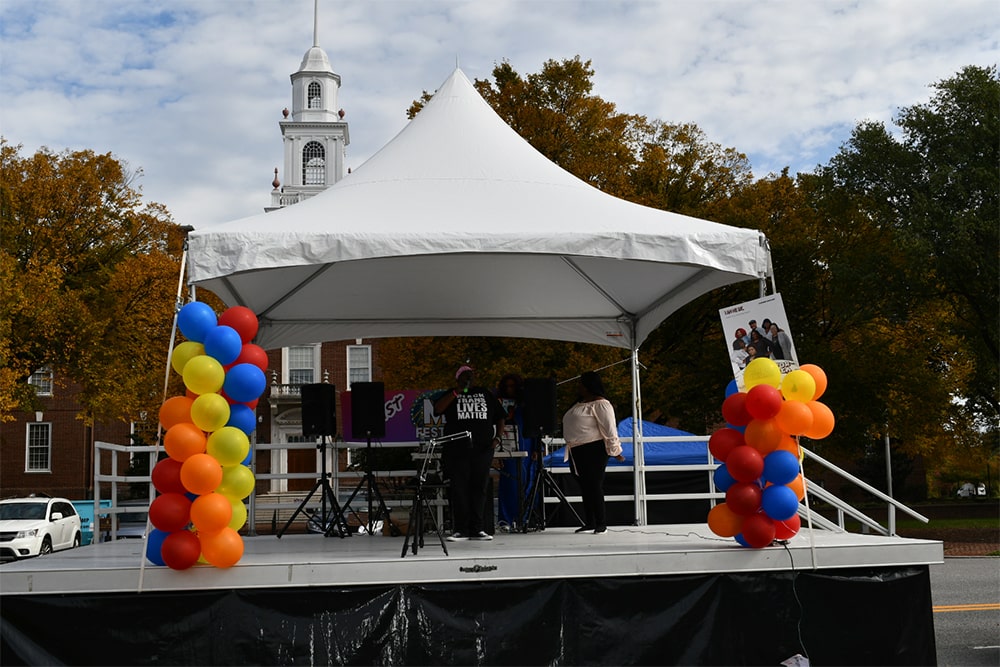
Since 2022, Legislative Mall also has hosted the I Am Me Inc.’s Me Fest, a new LGBTQ+ festival. I Am Me Inc. was established in 2021 to offer safe social spaces with programs that uplift and unify the LGBTQ+ community. Founder Peirrce McCoy had noticed that some Delawareans still held misconceptions about the queer community, and she founded I Am Me Inc. to provide education to the queer and straight communities and to create social opportunities where people of color feel fully welcomed. The second annual Me Fest was held in August 2023 and featured musical guests, drag performers, vendors, and more.
Photo Courtesy: Rachel Sawicki/Delaware Public Media, The News Journal, February 6, 1973, via Newspapers.com, Vicky Tosh-Morelli, The News Journal, January 2, 2012, via newspapers.com, Delaware Division of Historical and Cultural Affairs, Delaware Senate Democrats, SussexPride.org, Delaware Public Archives, and Carolanne Deal
Sources:
- Cohen, Celia, “Sen. Karen Peterson’s Gay Marriage Speech,” Delaware Today, July 11, 2013
- Delaware Pride
- “Del. Pride Festival Makes History in Dover,” WBOC, August 3, 2014
- Freedom For All Americans: LGBTQ+ Non-Discrimination in Delaware
- I Am Me Inc.
- Kesler, Nancy, “Bill curbing hate crimes becomes law,” The News Journal, July 13, 1997
- “Overnight In 10 Years: The Long Fight for LGBTQ Rights In Delaware,” Whip Count podcast by the Delaware House Democratic Caucus
- Schmadeke, John, “Homosexuals’ rights concern lobbyist,” The News Journal, February 6, 1973
- Windsor v. United States
Explore Other Places
-
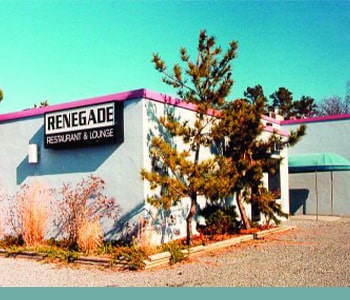
The Renegade
4274 Coastal Highway, Rehoboth Beach, DE
A once popular gay bar, restaurant, and resort at the Delaware beaches.
-
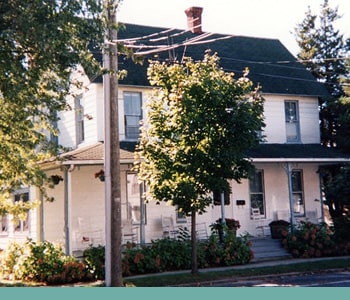
Rehoboth Guest House
40 Maryland Avenue, Rehoboth Beach, DE
A historically queer-friendly guest house that still welcomes visitors today.
-
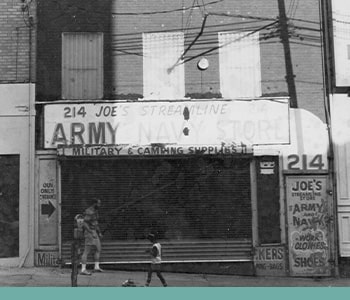
Griffin Community Center
214 N. Market Street, Wilmington, DE
A Former LGBTQ+ community center in northern Delaware that offered a wide variety of services and support during a time of need.
-
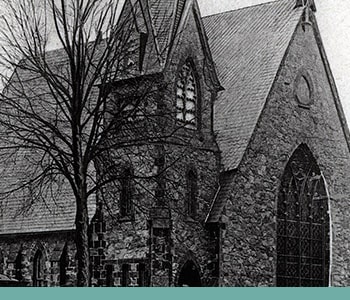
Daugherty Hall at the University of Delaware
17 W. Main Street, Newark, DE
A gathering place for all and where the University of Delaware’s Gay Student Union hosted its weekly coffeehouses.
-
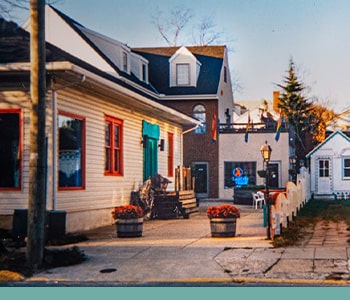
CAMP Rehoboth Community Center
37 Baltimore Avenue, Rehoboth Beach, DE
A longstanding LGBTQ+ community center in Sussex County.


